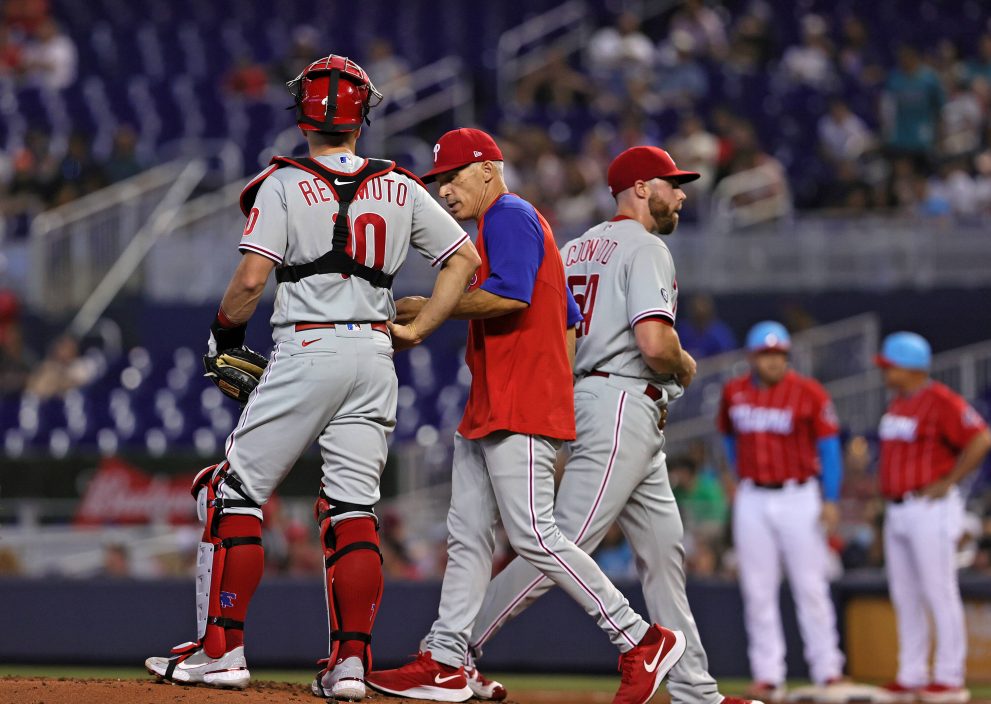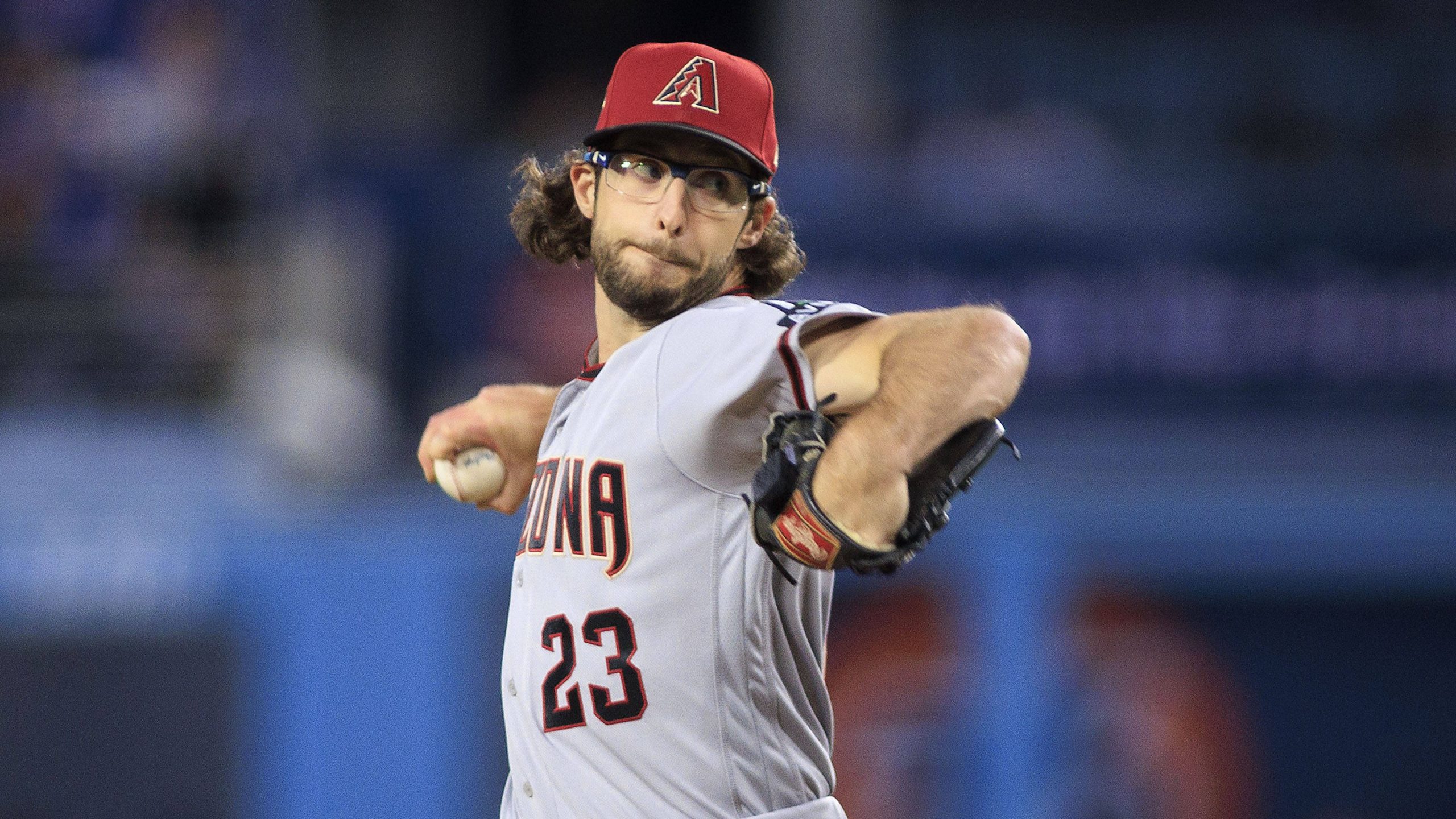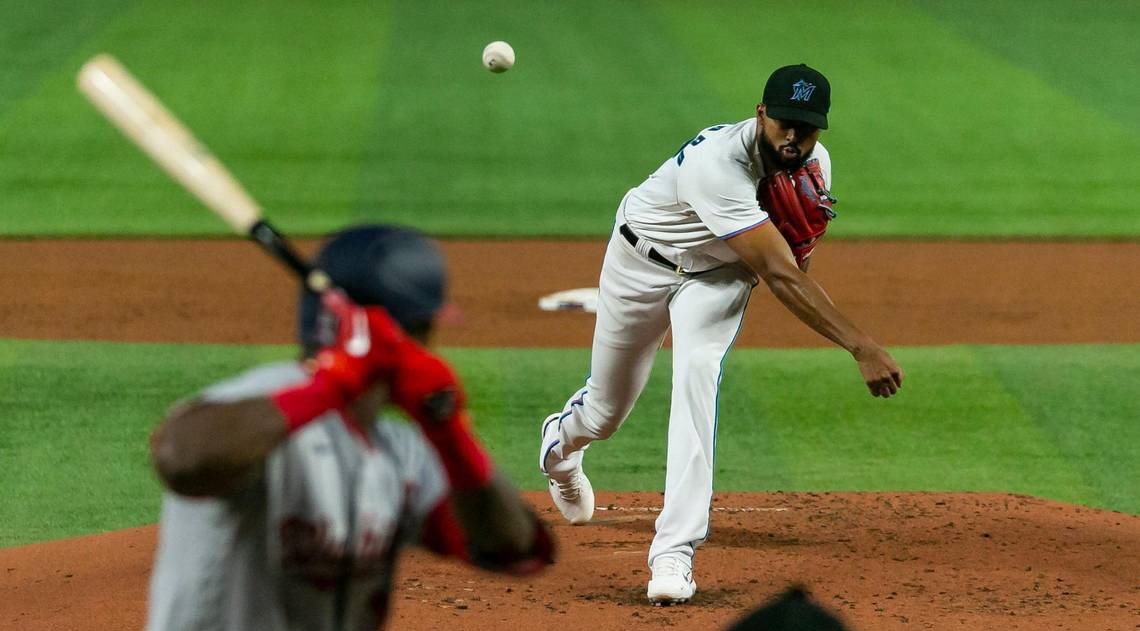Almost 16 years after first becoming a member of a select club no one really wants to join, Joe Girardi garnered some more awkward exclusivity Friday morning, when he was fired as the manager of the skidding Philadelphia Phillies.
The Phillies — with a team-record $233 million payroll and the reigning National League MVP in Bryce Harper as well as 2021 Cy Young runner-up Zack Wheeler but also a defense abysmal to the point where the word abysmal would prefer not to be associated with the Phillies’ defense — entered today with a 22-29 record. That’s tied for fourth-worst in the NL and leaves Philadelphia — which hasn’t made the playoffs since 2011, the longest drought among NL teams — 5 1/2 games behind the San Francisco Giants in the race for the third and final wild card spot.
Per DraftKings, the Phillies’ odds of making the playoffs have gone from -140, which were the sixth-best odds as of Opening Day, to +235, eighth-best and behind every team currently occupying an NL postseason spot as well as the Atlanta Braves.
Getting fired midseason isn’t quite as unusual as winning the Manager of the Year for a former employer, which Girardi did in 2006, when the then-Florida Marlins dismissed him weeks before he was named the National League’s top skipper. Only one other manager — Davey Johnson of the 1997 Baltimore Orioles — hadn’t been retained off a Manager of the Year-winning season.
But midseason dismissals used to be far more common. Discounting ceremonial changes made in late September, Girardi is the first manager fired in-season since the St. Louis Cardinals fired Mike Matheny at the All-Star Break in 2018. Girardi is only the fourth manager fired midseason since 2016 — or one more firing that occurred in a three-day span in May 1991, when Don Zimmer (Chicago Cubs), John Wathan (Kansas City Royals) and Frank Robinson (Orioles) were dismissed, one after the other.
And those of us who came of age in the ‘80s remember when New York Yankees owner George Steinbrenner fired managers in-season 10 times between 1975 and 1990, including twice in 1982.
Part of the reason why midseason firings are no longer routine: They almost never provide the short-term boost to a struggling team.
Only 13 baseball teams (with an asterisk) have qualified for the playoffs following a mid-season managerial change, including two in 1981, when the strike split the season into halves and resulted in division winners from each half advancing to the playoffs. The Kansas City Royals (from Jim Frey to Dick Howser) and Montreal Expos (from Dick Williams to Jim Fanning) each made changes in late August or early September and won the second half division title.
The asterisk belongs to the Yankees, who were already guaranteed a playoff spot as the first-half winners in the American League East when they fired Gene Michael in September and replaced him with Bob Lemon.
And those Yankees are one of just eight teams to reach the World Series after making a midseason managerial change. Only two teams — the 1978 Yankees (from Billy Martin to Lemon) and 2003 Marlins (from Jeff Torborg to Jack McKeon) have won the World Series the season in which they fired a manager. That 1978 firing, by the way, marked the only time the Yankees made the playoffs after changing a manager mid-season under Steinbrenner.
The 2003 Marlins are the most recent team to reach the World Series following a midseason firing. A year later, the Houston Astros (from Jimy Williams to Phil Garner) became the most recent squad to win a playoff round after making a managerial change. No team has even made the playoffs after changing managers since 2009, when the Colorado Rockies (from Jim Tracy to Clint Hurdle) won the NL wild card.
Girardi, who finished 132-141 with the Phillies and was replaced on an interim basis by bench coach Rob Thomson, appeared on MLB Network Radio this morning and wished his former team luck as it tries to change its fortunes.
“I think there’s more talent in that room than the way we have played,” Girardi said. “And I hope for the Middletons and the Bucks (the families that own the Phillies) and the organization that they can turn this around and get to the playoffs.”
History suggests the Phillies won’t.








